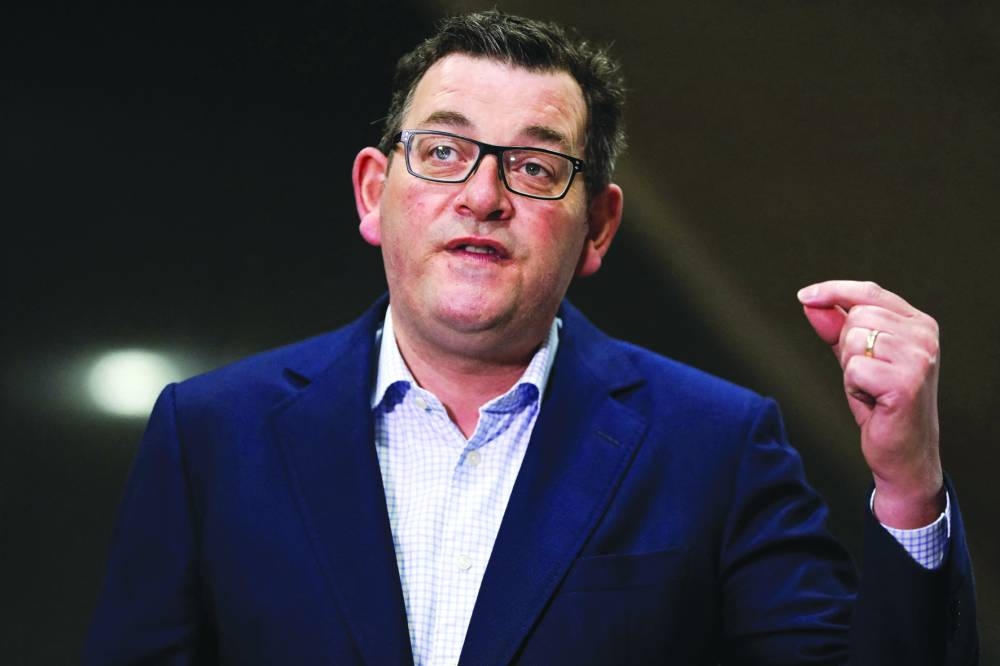The Australian state of Victoria pulled out of hosting the 2026 Commonwealth Games on Tuesday citing major cost blow-outs, leaving organisers “hugely disappointed” and scrambling to keep the multi-sport event alive.
State Premier Daniel Andrews said the initial estimate of Aus$2bn (US$1.36 billion) needed to hold the Games would more likely be around Aus$7bn, which he called “well and truly too much”.
“I’ve made a lot of difficult calls, a lot of very difficult decisions in this job. This is not one of them. Frankly, $7bn for a sporting event, we are not doing that,” he said at a news conference in Melbourne. “I will not take money out of hospitals and schools to host an event that is three times the cost estimated and budgeted for last year. The Games will not proceed in Victoria in 2026. We have informed Commonwealth Games authorities of our decision to seek to terminate the contract.”
The decision to pull the pin throws a question mark over not just the 2026 event but the concept as a whole, analysts said, with fewer countries showing interest in recent times to take on a spectacle seen as losing its relevance. The last Games in 2022 were held in Birmingham, but only after the English city stepped in to replace Durban in South Africa, which was stripped of hosting rights after a series of missed deadlines and financial problems.
The Commonwealth Games Federation insisted it remained “committed to finding a solution for the Games in 2026”. The event typically attracts more than 4,000 athletes from the 54 nations of the Commonwealth, almost all of them former territories of the British Empire. The 2026 version – featuring 20 sports and 26 disciplines – was due to be held across five regional hubs, including Geelong, Ballarat, Bendigo, Gippsland and Shepparton, with each having its own athletes’ village.
Andrews said his team had looked at cutting the number of hubs or even moving the Games to the Victoria state capital Melbourne but “none of those options stack up”. He refused to say how much it cost to terminate the agreement but insisted talks with the Commonwealth Games Federation were amicable.
However, the London-based Federation blasted the move as “hugely disappointing”. “We are disappointed that we were only given eight hours’ notice and that no consideration was given to discussing the situation to jointly find solutions prior to this decision being reached by the government,” it said in a statement.
A spokesman for British Prime Minister Rishi Sunak lamented a “disappointing outcome for both fans and athletes”, but said talk of Britain stepping in to stage the event was “getting slightly ahead of ourselves”. “We hope that the Victoria state government, the Games federation and Commonwealth Games Australia will now work together to find a viable solution to hosting the event in 2026,” the spokesman said.
Pressed on the possibility of a British bid, he added: “Obviously the UK has been honoured to host the Games twice in the past decade (Birmingham 2022 and Glasgow 2014) so we will see what comes out of those initial discussions.”
CGF chief executive Katie Sadlier said: “The UK are fantastic hosts and we would be very open to having a conversation with them about it, if that’s something they would be interested in doing.”
Victoria was only awarded the contract 14 months ago as the exclusive bidder, with the Federation claiming the state had decided to include more sports, added an additional regional hub, and changed plans for venues. These additional costs were “often against the advice of the Commonwealth Games Federation and Commonwealth Games Australia”, it said, adding that it had received assurances that “sufficient funding was available to deliver the Victoria 2026 Commonwealth Games”.
Commonwealth Games Australia president Ben Houston was equally scathing, claiming the new cost estimates were a “gross exaggeration”.
But Tom Heenan, a lecturer in sport and Australian studies at Monash University, said it showed that hosting mega-events like the Commonwealth Games was not worth it. The Australian city of Brisbane in the state of Queensland will host the 2032 Summer Olympics.

Victoria's state Premier Daniel Andrews. (AFP/File photo)
